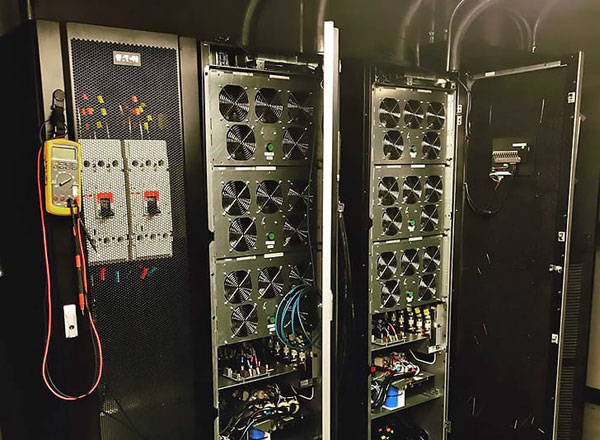
An uninterruptible power supply is an essential component of modern life, providing emergency backup, electrical protection, and voltage regulation for a wide range of applications. From safeguarding sensitive equipment like single-phase networking devices and preventing data loss to ensuring the smooth operation of life-saving devices, UPS systems play a crucial role in maintaining the reliability of electrical supply. By understanding the different types of UPS systems, their features, and their applications, one can make an informed decision when selecting the right UPS system for their specific needs.
A UPS system offers several benefits beyond providing backup during an outage. One of its essential functions is power protection, ensuring that electrical equipment remains safe from surges, voltage fluctuations, and other electricity-related issues. Surge protection plays a critical role in this aspect by safeguarding connected devices from sudden voltage spikes, which could cause irreversible damage.
Voltage regulation is another vital aspect of uninterruptible power supplies. It helps maintain a constant voltage level for the connected equipment, especially during voltage fluctuations. This feature is essential for the smooth operation of sensitive equipment like computers, networking equipment, and medical devices.
UPS systems come in various types, such as single-phase and three-phase, based on the electrical load they can handle. The most common types are line-interactive, double conversion, and standby. Line-interactive UPS systems adjust the input voltage with the help of an autotransformer, while double conversion systems convert the input AC power to DC and then back to AC, providing a pure sine wave output. Standby UPS systems, on the other hand, only switch to battery during an outage.
The heart of any UPS system is its battery backup, which provides emergency supply when the main source fails. These batteries store electrical energy and release it during outages or fluctuations. The battery's run time is a crucial factor to consider when selecting a UPS, as it determines how long the connected devices can continue to operate on backup supply.
Another aspect to consider when selecting a UPS system is the volt-ampere (VA) rating, which indicates the maximum electrical load the UPS can handle. It is essential to choose a UPS with a VA rating that matches the electricity requirements of the equipment it will protect.
Uninterruptible power supplies are indispensable for a wide range of applications, from residential use to large-scale industrial setups. For example, in homes, a UPS can provide backup supply to essential appliances and devices during an outage, ensuring safety and comfort. In businesses, UPS systems protect sensitive equipment like servers and networking devices from power-related damage, preventing data loss and ensuring business continuity.
In mission-critical facilities like hospitals, uninterruptible power supplies play a vital role in providing emergency supply to life-saving equipment and maintaining essential operations during failures. Similarly, UPS systems are critical in data centers, where they protect against data loss and downtime caused by disruptions.
Surge protectors are often used in conjunction with UPS systems to provide an additional layer of protection. While a UPS safeguards against outages and voltage fluctuations, surge protectors protect connected devices from voltage spikes caused by lightning strikes or other electrical disturbances.
To ensure optimal performance, it is essential to select the right UPS system for your specific needs. Factors to consider include the type of equipment you need to protect, the required run time, and the appropriate VA rating. Additionally, it is essential to keep in mind that some devices, like sensitive equipment and devices with motors, may require a UPS with a pure sine wave output.
Regular maintenance is crucial for the longevity and performance of a UPS system. This includes periodically checking and replacing batteries, as well as monitoring the overall health of the system. Proper maintenance ensures that your uninterruptible power supply remains ready to provide backup power and protection when needed.
What are the different types of UPS systems, and how do they differ in functionality?
There are three main types of UPS systems:
How do I choose the right UPS system for my specific needs and equipment?
To choose the right UPS system, consider the following factors:
What factors should I consider when determining the appropriate size and capacity of a UPS system?
Consider the following factors:
How can a UPS system help protect my sensitive electronic equipment from electricity issues like power surges, outages, and voltage fluctuations?
A UPS system provides protection against electricity issues by:
What is the importance of regular maintenance and battery replacement for UPS systems?
How can a UPS system benefit various industries and applications, such as data centers, healthcare facilities, and residential use?